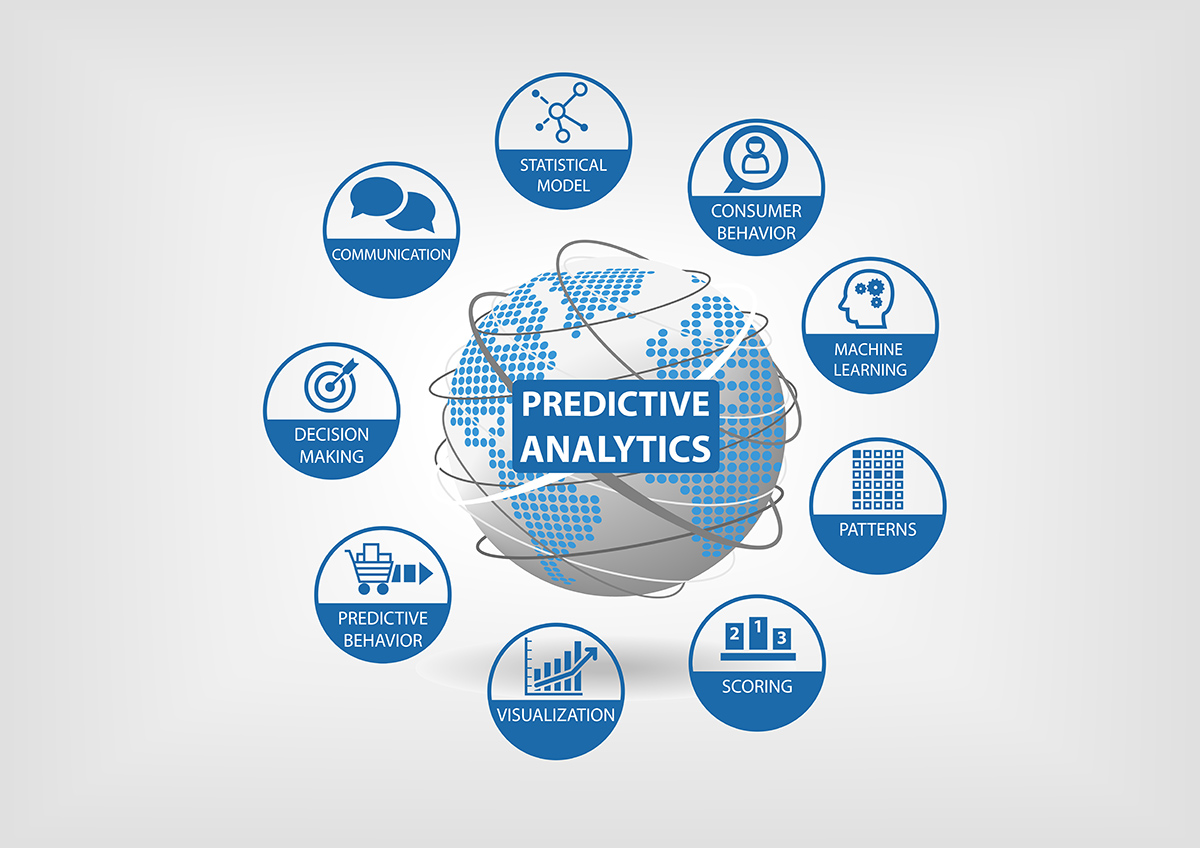

The Role of AI in Predictive Analytics for Healthcare
The healthcare industry is experiencing a significant transformation, driven in part by the increasing availability of digital data and the emergence of artificial intelligence (AI) technologies. One area where AI is having a profound impact is in predictive analytics, which involves using statistical models and machine learning algorithms to forecast future events or outcomes based on historical data.
Predictive analytics has been used in various industries for decades, but its application in healthcare is relatively recent. However, the potential benefits of predictive analytics in healthcare are vast, and AI is playing a key role in unlocking these benefits.
The Current State of Healthcare
The healthcare industry is facing numerous challenges, including rising costs, an aging population, and increasing demand for services. In addition, the industry is shifting from a fee-for-service model to a value-based care model, where providers are incentivized to deliver high-quality, cost-effective care.
To succeed in this new landscape, healthcare organizations need to be able to make data-driven decisions, reduce costs, and improve outcomes. This is where predictive analytics comes in.
The Role of Predictive Analytics in Healthcare
Predictive analytics involves using statistical models and machine learning algorithms to analyze large datasets and identify patterns and trends. In healthcare, predictive analytics can be used to:
- Identify high-risk patients: By analyzing demographic, clinical, and behavioral data, predictive models can identify patients who are at high risk of developing certain conditions or experiencing adverse events.
- Predict readmissions: Predictive models can identify patients who are at high risk of being readmitted to the hospital, allowing providers to take proactive steps to prevent readmissions.
- Optimize care pathways: Predictive analytics can help providers identify the most effective care pathways for specific patient populations, reducing costs and improving outcomes.
- Detect disease outbreaks: Predictive models can analyze real-time data to identify potential disease outbreaks, allowing for earlier intervention and prevention.
- Improve patient engagement: Predictive analytics can help providers identify patients who are at risk of non-adherence to medications or treatment plans, allowing for more targeted interventions.
The Role of AI in Predictive Analytics
AI is playing a crucial role in advancing predictive analytics in healthcare. AI algorithms can:
- Analyze large datasets: AI algorithms can quickly analyze large datasets, including electronic health records (EHRs), claims data, and social determinants of health data.
- Identify complex patterns: AI algorithms can identify complex patterns and relationships in data that may not be apparent to human analysts.
- Automate model development: AI algorithms can automate the development of predictive models, reducing the need for manual data analysis and modeling.
- Improve model accuracy: AI algorithms can improve the accuracy of predictive models by incorporating new data and updating models in real-time.
- Scale to meet demand: AI algorithms can scale to meet the demands of large healthcare organizations, analyzing millions of patient records in real-time.
Real-World Examples of AI in Predictive Analytics
- Google’s DeepMind: Google’s DeepMind AI algorithm has been used to analyze EHRs and identify patients at risk of acute kidney injury.
- Kaggle’s Healthcare Competition: Kaggle, a leading data science platform, hosted a competition to develop predictive models for healthcare applications. The competition attracted over 1,000 participants and resulted in the development of innovative AI-powered predictive models.
- Partners HealthCare’s Predictive Analytics Platform: Partners HealthCare, a Boston-based healthcare system, has developed a predictive analytics platform that uses AI to identify patients at risk of readmission and hospital-acquired conditions.
Challenges and Limitations
While AI has the potential to revolutionize predictive analytics in healthcare, there are several challenges and limitations to consider:
- Data quality: AI algorithms are only as good as the data they are trained on. Poor data quality can lead to biased or inaccurate models.
- Interoperability: Healthcare data is often siloed across different systems and organizations, making it difficult to access and integrate.
- Regulatory challenges: Healthcare organizations must comply with regulations such as HIPAA, which can limit the use of AI in predictive analytics.
- Ethical considerations: AI algorithms can perpetuate biases and exacerbate health disparities if not developed and deployed carefully.
Conclusion
The role of AI in predictive analytics for healthcare is clear: AI has the potential to unlock the full potential of predictive analytics, enabling healthcare organizations to make data-driven decisions, reduce costs, and improve outcomes.
However, to realize these benefits, healthcare organizations must address the challenges and limitations of AI in predictive analytics, including data quality, interoperability, regulatory challenges, and ethical considerations.
By leveraging AI in predictive analytics, healthcare organizations can create a more sustainable, patient-centered healthcare system that delivers high-quality, cost-effective care.




